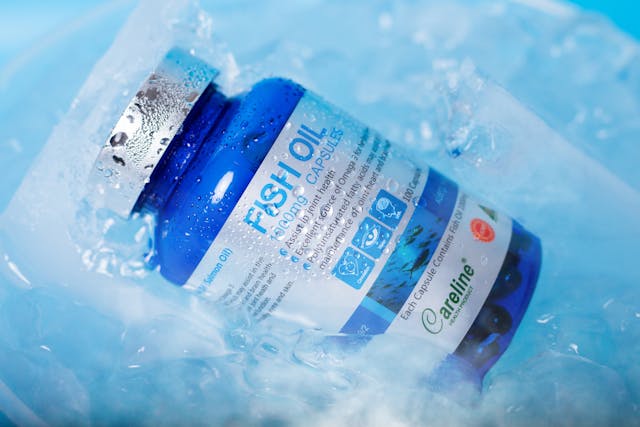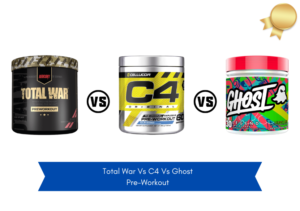When it comes to achieving your fitness goals, The Right Supplements for Fitness Goals can truly make a difference in how fast you see results. Whether you’re aiming to build muscle, lose weight, boost endurance, or simply maintain overall health, choosing the right supplements can give you that extra boost. But with so many options on the market, it can feel overwhelming trying to figure out what will actually help you and what’s just hype.
This guide is here to simplify the process. We’ll break down the key supplements you need to know about, like protein, amino acids, creatine, and pre-workout formulas, and explain how they can support your specific fitness goals. You’ll also learn about proper dosages, timing, and how to select quality products that will give you real results.
Everyone’s body is different, and The Right Supplements for Fitness Goals vary depending on individual needs. Whether you’re just starting out or have been training for years, this guide will help you make smart, informed choices so you can confidently select the supplements that will work best for you and your personal fitness journey.
Understanding the Basics of Supplements
Supplements are products designed to add nutritional value to your diet. They come in various forms, including powders, pills, capsules, and liquids, and are intended to supplement nutrients you may not be getting enough of from your food. It’s important to remember that supplements are not a substitute for a healthy diet but can be beneficial when used correctly to fill nutritional gaps and enhance performance.
Popular Types of Supplements for Fitness

Understanding the different types of supplements available can help you choose the right ones for your needs. Here’s an in-depth look at some of the most popular supplements used by fitness enthusiasts:
1 Protein Supplements
- Whey Protein: Whey protein is derived from milk and is a complete protein, meaning it contains all nine essential amino acids. It is quickly absorbed by the body, making it an ideal choice for post-workout recovery. Research indicates that whey protein can support muscle growth, enhance strength, and improve body composition when combined with resistance training. Read more about whey protein here.
- Casein Protein: Casein is another milk-derived protein that digests more slowly than whey. This slow-release property makes it perfect for nighttime consumption or periods when you won’t be eating for a while, as it provides a steady release of amino acids to support muscle repair.
- Plant-Based Proteins: For those who are lactose intolerant or follow a vegan diet, plant-based protein powders like pea, hemp, and rice protein can be excellent alternatives. These proteins are often fortified with additional amino acids to ensure they provide a complete protein profile.
2 Creatine:
- Creatine Monohydrate: Creatine is one of the most researched supplements on the market and is widely recognized for its ability to improve strength, increase muscle mass, and enhance overall performance. It works by increasing the availability of ATP (adenosine triphosphate), the energy currency of cells, which allows for more intense and prolonged workouts. Explore a comprehensive study on creatine’s benefits.
- Other Forms of Creatine: While creatine monohydrate is the most common form, there are other variations like creatine ethyl ester and buffered creatine. However, monohydrate remains the most cost-effective and proven form.
3 Branched-Chain Amino Acids (BCAA’s):
- BCAAs, including leucine, isoleucine, and valine, are essential amino acids that the body cannot produce on its own. They are particularly effective in reducing muscle soreness, speeding up recovery, and preventing muscle breakdown during intense exercise. Many athletes consume BCAAs during or after their workouts to help reduce muscle fatigue and enhance performance.

4 Pre-Workout Supplements:
- Common Ingredients: Pre-workout supplements often contain a blend of ingredients like caffeine, beta-alanine, and nitric oxide boosters. These ingredients work synergistically to enhance focus, increase energy levels, and improve blood flow to muscles, which can lead to better performance during workouts.
- Benefits: Pre-workout supplements can be especially beneficial for those who need an extra boost of energy or motivation to get through intense training sessions. However, it’s essential to choose a product with ingredients and dosages that align with your fitness goals and tolerance levels.
5 Fat Burners and Thermogenics:
- Caffeine: A popular ingredient in many fat burners, caffeine helps boost metabolism and increase energy expenditure. It also enhances focus and alertness, making it a common ingredient in both pre-workout and fat-burning supplements.
- Green Tea Extract: Rich in antioxidants and natural caffeine, green tea extract is known for its ability to promote fat oxidation and improve metabolic rate. Read more about green tea extract’s benefits.
- L-Carnitine: This amino acid plays a crucial role in the transportation of fatty acids into the mitochondria, where they are burned for energy. L-carnitine supplements are popular among those looking to improve fat loss and enhance endurance.

6 Recovery Supplements:
- Glutamine: An amino acid that plays a vital role in immune function and muscle recovery, glutamine is often taken post-workout to help repair muscle tissue and reduce soreness.
- Electrolytes: Maintaining proper hydration and electrolyte balance is essential for muscle function and recovery. Electrolyte supplements, often in the form of powders or tablets, can help replenish sodium, potassium, and magnesium lost through sweat.
How to Choose the Right Supplements for Your Fitness Goals

Now that you have a better understanding of the types of supplements available, it’s essential to choose the right ones based on your specific fitness goals.
- Goal: Building Muscle Mass
- Recommended Supplements: Whey protein, casein protein, creatine monohydrate, and BCAAs.
- Why They Work: These supplements provide the necessary building blocks for muscle growth and recovery, allowing you to train harder and recover faster.
- Goal: Fat Loss
- Recommended Supplements: Caffeine, green tea extract, L-carnitine, and CLA (conjugated linoleic acid).
- Why They Work: These supplements can help boost metabolism, increase fat oxidation, and enhance energy levels, making it easier to create a calorie deficit and burn fat.
- Goal: Enhanced Endurance
- Recommended Supplements: BCAAs, beta-alanine, electrolytes, and beetroot extract.
- Why They Work: These supplements help in reducing muscle fatigue, improving endurance, and maintaining electrolyte balance, allowing you to perform at your best during long or intense training sessions.
- Goal: Improved Overall Health
- Recommended Supplements: Multivitamins, omega-3 fatty acids, probiotics, and vitamin D.
- Why They Work: These supplements support general health, improve immune function, promote heart health, and ensure adequate nutrient intake, which is crucial for overall well-being.

Personalization of Supplement Regimen
Choosing the right supplements for your fitness goals also involves considering your personal factors, such as age, sex, activity level, and specific health conditions.
- Age: As we age, our nutritional needs change. For example, older adults may benefit more from protein supplements to prevent muscle loss (sarcopenia) and maintain muscle function. Calcium and vitamin D are also essential for bone health in older adults.
- Sex: Nutritional requirements can differ between different genders due to hormonal differences and specific health needs. Women, for instance, may require more iron due to menstruation and calcium for bone health, while men might focus on supplements that support testosterone levels and muscle growth.
- Activity Level: Your level of physical activity plays a significant role in determining your supplement needs. Highly active individuals or athletes may require more protein and amino acids to support recovery and muscle growth, as well as electrolytes to replenish those lost through sweat.
- Health Conditions: If you have specific health issues, such as osteoporosis or iron-deficiency anemia, you may need targeted supplements like calcium and vitamin D or iron. It’s always essential to consult with a healthcare professional before starting any new supplement, especially if you have underlying health conditions.

Insert Link: “Guide to Personalized Supplementation”
Myths and Misconceptions About Supplements
There are many myths surrounding supplements, and it’s essential to separate fact from fiction to make informed choices.

- Myth: More is Better
- Fact: Taking more than the recommended dose of supplements can lead to toxicity and other health issues. For instance, excessive intake of fat-soluble vitamins like A, D, E, and K can accumulate in the body and cause adverse effects. Always stick to recommended doses and consult a healthcare professional if you’re unsure.
- Insert Link: “Risks of Over-supplementation”
- Myth: Natural Supplements Are Always Safe
- Fact: Just because a supplement is labeled “natural” doesn’t mean it is safe. Some natural supplements can interact with medications or have side effects. For example, St. John’s Wort, often used for depression, can interfere with the effectiveness of certain medications. Always research and consult a healthcare professional before starting any new supplement.
- Myth: Supplements Can Replace a Healthy Diet
- Fact: Supplements are meant to complement the diet, not replace it. A balanced diet rich in whole foods provides a wide range of nutrients that supplements can’t replicate. Relying solely on supplements without a healthy diet can lead to nutrient imbalances and health issues.
Research on Supplement Efficacy
Scientific research is crucial for understanding which supplements are effective and which are not. Here’s a look at some well-researched supplements and their benefits:
- Protein Supplements: Numerous studies have confirmed the benefits of protein supplementation for muscle growth and recovery. A meta-analysis published in the British Journal of Sports Medicine found that protein supplementation significantly improves muscle strength and size in both trained and untrained individuals. Read the full study here.
- Creatine: A comprehensive review published in the Journal of the International Society of Sports Nutrition highlighted that creatine supplementation can increase muscle mass and improve strength and performance in various populations, including athletes and older adults. Learn more about creatine research.
- Omega-3 Fatty Acids: Research indicates that omega-3 fatty acids can reduce inflammation, improve heart health, and support brain function. A study in the American Journal of Clinical Nutrition found that omega-3 supplementation can lower triglyceride levels and reduce the risk of cardiovascular disease. Explore the study on omega-3s.
- BCAAs: BCAAs have been shown to reduce muscle soreness and fatigue, especially in endurance athletes. A study published in the Journal of Sports Medicine and Physical Fitness found that BCAA supplementation before exercise can significantly reduce muscle damage and accelerate recovery. Read more about BCAA benefits.
Quality and Safety Considerations for Right Supplements for Fitness Goals
When choosing supplements, quality and safety should be top priorities. Here are some tips to ensure you’re selecting high-quality products:
- Third-Party Testing: Look for supplements that have been tested by independent third-party organizations like NSF International, Informed-Sport, or ConsumerLab. These organizations test supplements for purity, potency, and the absence of contaminants.
- Check the Label: Read the supplement label carefully to ensure it contains the ingredients you need and avoid any unnecessary fillers or additives. Pay attention to the serving size and recommended dosage.
- Reputable Brands: Choose supplements from reputable brands that have a track record of quality and transparency. Research the brand and check for any recalls or warnings issued by regulatory agencies like the FDA.
- Consult a Professional: Before starting any new supplement, consult with a healthcare professional, especially if you have existing health conditions or are taking medications. They can help you determine the right supplements and dosages for your needs.
Insert Link: “Guide to Choosing Safe Supplements”
The Role of Diet and Lifestyle and the Right Supplements for Fitness Goals

While supplements can be beneficial, they are most effective when combined with a healthy diet and lifestyle. Here are some additional factors to consider:
- Balanced Diet: A diet rich in whole foods, including fruits, vegetables, lean proteins, whole grains, and healthy fats, provides the foundation for optimal health and performance. Supplements should be used to fill gaps, not replace these essential nutrients.
- Hydration: Staying hydrated is crucial for overall health and performance. Dehydration can impair physical and cognitive function, so ensure you’re drinking enough water throughout the day, especially during exercise.
- Rest and Recovery: Adequate rest and recovery are essential for muscle growth and overall well-being. Ensure you’re getting enough sleep and allowing time for recovery between workouts to maximize the benefits of your supplements.
- Consistency: Supplements are not a magic bullet; they require consistent use and proper dosage to be effective. Follow the recommended guidelines and be patient, as it may take time to see results.
Conclusion: Discovering the Right Supplements for Fitness Goals
Choosing the right supplements for your fitness goals involves understanding your needs, doing thorough research, and making informed decisions based on scientific evidence and professional advice. Remember, supplements are just one piece of the puzzle; a balanced diet, regular exercise, and a healthy lifestyle are equally important for achieving and maintaining your fitness goals.
By taking the time to choose the right supplements and use them wisely, you can enhance your performance, support your health, and reach your fitness goals more effectively.
For further reading on supplements for immune-boosting, read our blog here




